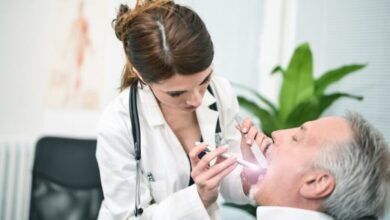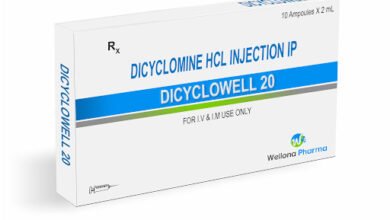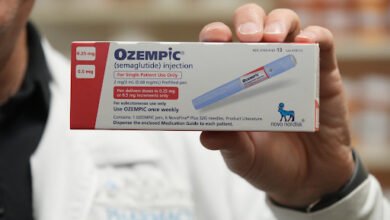Getting Stage 3 Lung Cancer for Christmas Only Made Me Love the Holidays More

As told to Erica Rimlinger
After two seasons of exhaustion with wheezing that was coming and going, I finally sat in my doctor’s office looking at an X-ray of my lungs. The doctor said it was pneumonia. I looked closely at the black-and-white screen. In the middle of my left lung sat a blob, a fist-sized white area. That’s not good, I thought. It was two days before Christmas. I was reasonably convinced the blob was cancer, but I had other things to do.
In the meantime, my Charlotte, North Carolina, home was filling up with family: my husband and my three kids, ages 21, 24 and 25, who were settling in for the holidays. Although I hadn’t yet received my official diagnosis, I was pretty sure that what I saw on my lung that day was a tumor. It was not a small one.
Cancer runs like an outlaw through my family. Because of this, I’d always tried to be intentional about my life choices such as eating healthy and exercising. I got my mammograms and colonoscopies. I was 18 when my mom was diagnosed with the breast cancer that eventually took her life. I knew too well what it was like to learn the news and have unasked concerns and mysterious fears. I knew what questions my kids would ask — because I’d asked those questions too, once.
Since there weren’t any answers yet, I saw no point in bringing up a problem with no name and no plan for a solution. I went home with antibiotics for my pneumonia and decided not to tell anyone what I’d seen on the X-ray. My family knew I was sick, so they probably chalked up my quiet mood to my pneumonia. As scared as I was, I wasn’t going to dump this additional stress on them.
I refused to accept that I had cancer until the word was spoken out loud by a doctor. A theoretical tumor would not ruin Christmas. This was not the memory I was going to create for this holiday.
The kids and my husband cared for me during the holiday and lightly scolded me for not getting to the doctor sooner. Over the summer, we’d spent a lot of time at the beach, and I hadn’t been able to breathe the whole time. I thought I had allergies, or that I was just sick from the humidity. That fall, I had my usual hay fever and allergies, but I kept pushing through Thanksgiving and into December. By then my husband finally convinced me to see my doctor. “I’ll go get some antibiotics,” I thought. “I’ll just get rid of this.” It didn’t feel urgent. I didn’t feel or look the way people did in the movies: I wasn’t coughing up blood into a handkerchief. I was just tired and wheezy.
October 2022 (Photo/Rusty Williams)
The first Monday after the holidays, the screenings, scans, appointments and bronchoscopies began, leading to a biopsy. The biopsy caused complications including a pleural effusion, which meant there was a liter and a half of fluid in my lung. My lung collapsed, landing me in the emergency room. That day was my daughter’s 25th birthday, putting another family holiday in jeopardy.
My first official diagnosis was grimmer than it would wind up being. I was told I probably had stage 4 metastatic lung cancer. The situation was getting more real by the minute. I felt numb inside. I still looked like myself in the mirror: How could I have lung cancer?
After more testing my diagnosis was revised to stage 3. By summer of 2017, surgery and treatment were complete and there was no evidence of disease. On July 3, I celebrated Independence Day early by having my chemotherapy port removed. I was told to get on with my life and return for a follow-up scan every three months. After the hurricane of emotions and physical damage, I set out to recover and begin the next holiday season with an entirely new “normal.”
I found a support group for survivors of lung cancer. It was there I learned about genomic biomarkers and the role they play in an individual’s response to cancer treatment. My doctors told me I had no biomarkers, but after seeking a second opinion and asking for the test, I learned of my KRAS biomarker mutation, which is common among people with lung, colon and pancreatic cancers.
I wanted to find others like me, so I started an online community, called KRAS Kickers. The group helps us connect with each other and learn about how biomarkers can help us get more effective cancer treatment.. After sitting in the backseat of my care for so long, the group helped me become educated and empowered to participate in my own care choices. It’s a good thing, too. I’ve had five recurrences over five years — and the knowledge I’ve gained has helped me get back to health each time.
The holidays have new meaning for me and my family now. Thanksgiving, which was always my favorite holiday, is more grateful than ever. And Christmas is a time for realizing what a gift life is. It brings happiness to think of how much more I can appreciate my family and friends.
The first Christmas after my diagnosis was the Christmas I was afraid I’d never see. We celebrated with a huge party. Everybody was invited, even my surgeon — and he came. That past year had been the hardest of my life, but it also showed me what an amazing community of support I had around me. The relationships I forged with friends and community members grew stronger and deeper because of my fight with lung cancer. Rather than spoiling this holiday, cancer has made us more aware that every holiday, every day, and every minute brings a chance to celebrate every single blessing we have.
Have a Real Woman, Real Stories of your own you want to share? Let us know.
From Your Site Articles
Related Articles Around the Web
Source link
#Stage #Lung #Cancer #Christmas #Love #Holidays



